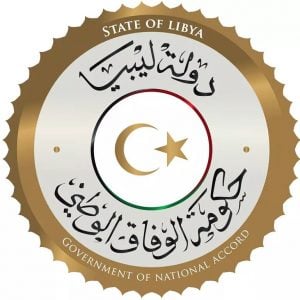By Sami Zaptia.

London, 30 September 2019:
The internationally recognized Libyan government based in Tripoli and led by Faiez Serraj has announced seven conditions for any planned ceasefire, dialogue and political solution to Libya’s current crisis.
The announcement comes on the back of talks in New York on the margins of the UN General Assembly meeting and ahead of a German-led international conference on Libya.
In issuing its seven conditions, the Serraj administration assured of its determination to defeat the ‘‘war criminal and his militias’’ (Khalifa Hafter). It also stated that it will not agree to dialogue with anyone who does not believe in the establishment of a civilian, democratic state and the peaceful transfer of power. It also added that it would not talk to someone whose hands have been stained by the blood of Libyans and committed war crimes and infringements against human rights.
Here are the seven preconditions set out by the Serraj government:
1-The Libyan Political Agreement (LPA – brokered by the UN and signed in Skhirat, Morocco in December 2015) must be the basis for talks as well as the institutions born out of it (the Presidency Council, the House of Representatives and the High State Council). There must also be an end to all dealings with parallel institutions.
2-Any ceasefire must begin with the unconditional withdrawal of the pro Hafter forces to their original positions before the outbreak of fighting.
3-The reconfirmation that there was no ‘‘Abu Dhabi Agreement’’ – as is being marketed. The Abu Dhabi meeting was a consultative meeting. But there had been an agreement in Paris where elections and a date for them had been agreed. The Paris agreement was consolidated in the Palermo agreement – which Hafter did not adhere to.
(The Hafter side claim there was an agreement that may have included the peaceful entry of Hafter’s forces into Tripoli to counterbalance the Tripoli militias, or their DDR or their coming under the command of Hafter to ensure the results of an election is respected. They claim Serraj reneged upon returning to Tripoli in the face of by Tripoli’s militias. The proceedings of the secret Abu Dhabi meeting have been clouded in mystery and so it is difficult to know who is telling the truth. Ghassan Salame may know as he was brokering the talks).
4-The only political solution to the Libyan crisis is the UN’s plan of a National Gathering or Conference, as had been planned for 14 April 2019 in the Libyan town of Ghadames – which was undermined by the aggression by Hafter on Tripoli in an attempt at a coup against the legitimate Libyan government.
5-There can be no talk of establishing a ‘‘National Security Council’’ outside the LPA and before the ending of all parallel institutions (Hafter’s Libyan National Army – LNA), and that the military institutions be under the authority of the (LPA-created) Presidency Council and Government of National Accord (PC/GNA).
(Again, there have been ongoing talks in Cairo on the reunification of the Libyan Army under a National Security Council which included Hafter. The idea was that Hafter could lead the army yet be under civilian oversight. At one stage it was leaked that agreement had been reached)
6-The assurance that the National Oil Corporation (NOC) in Tripoli is the exclusive legitimate institution and under the direct authority of the GNA as per UN resolutions.
7-All states concerned with the Libyan issue must, without exception, participate in international conferences and meetings seeking a political solution for Libya.








